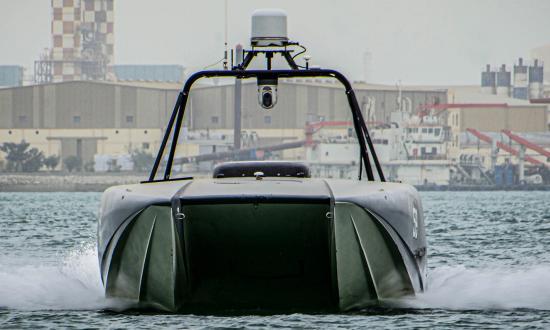As soon as their military careers begin, sailors hear stories of gallantry in action, extreme bravery, and exceptional military leaders. Sailors learn about the legendary members of the respective services, their heroic actions in battle, and their sacrifices for our country. Throughout their careers, service members in the U.S. military also are instructed and trained in various leadership skills, methods, and strategies, and to recognize shortcomings. So, what does it take to be a successful and effective leader? In my opinion, the two best qualities for great leaders are honesty and adaptability.
Honesty
Crew members working on the Coast Guard cutter William Tate (WLM-560). Developing honesty as a leadership skill builds trust and deepens relationships. Credit: U.S. Coast Guard (Lisa Ferdinando)
First, honesty helps establish a solid and trusting relationship between individuals. If individuals are open with one another, they can feel confident that everyone is on the same page and working to achieve the same objective. In some cases, if individuals are kept in the dark or details are kept from them unnecessarily, they may feel that they are not valued or trusted. This can lead to decreased work performance, loss of trust, or even rebellion.
Second, honesty ensures an individual knows what their supervisor and coworkers think of them. If a person is doing a poor job, they should know that, just as they should know when they excel. Granted, praise or discipline should happen according to policy and with proper respect and decorum, but both should be done swiftly and efficiently.
Last, honesty can lead to more interactions between people in times of need. For example, if I have an open and honest relationship with my supervisor on a day-to-day basis, I will be more likely to go to him or her if I have problems in my personal life. However, if I feel that my supervisor only tells me what I want to hear or holds back key details, then I would be hesitant to open up about personal issues. An effective and respected leader should feel comfortable being sought out for advice about anything from career progression, buying the right car, or marriage issues. An exceptional leader can guide others on all fronts.
Adaptability
A military career means multiple transfers to a variety of units, and every transfer creates a new mix of people, each with his or her own experiences, personalities, and beliefs. For that reason, adaptability is essential in a good leader. In this instance, adaptability is the ability to identify the most effective leadership tactic(s) for a given situation and use them appropriately.
For example, think of the new supervisor who reports to a unit and immediately starts making changes. While some positive and effective changes could happen, it also may make the people who have been at the unit longer and have insider knowledge and experience feel unimportant. It should be noted that immediate action must be taken in some cases, without input from others. However, it may not always be the best course of action.
Personally, when I report to a new unit, I always observe first. I try to get a feel for how things operate, what things could be improved or changed, and learn the personalities of my new coworkers. After a while, I can begin to suggest or make changes if I am able or gather input from my coworkers about possible improvements. Leaders will deal with stubborn people resistant to change of any kind, as well as individuals who seem apathetic. Some people need a firm hand, while others need gentle guidance. The same leadership style will not work with everyone. This is not a one-size-fits- all military. The ability to adapt based on the individual is what truly sets good leaders apart.
Becoming a good leader takes time, effort, and practice. Some become leaders almost immediately, some do it without effort, some dedicate their entire careers, and others could not care less. I am only halfway through my military career. I am not an expert, and I do not even consider myself a particularly good leader, but I do strive to become one. I want to be a person others seek out for guidance; someone others think of when they are faced with a big life decision, marital problem, or how to handle the stresses of parenthood. I want others to know that I am available, and that I will spend my personal time to assist them with whatever they need. Before others can follow, they must know you are there.








